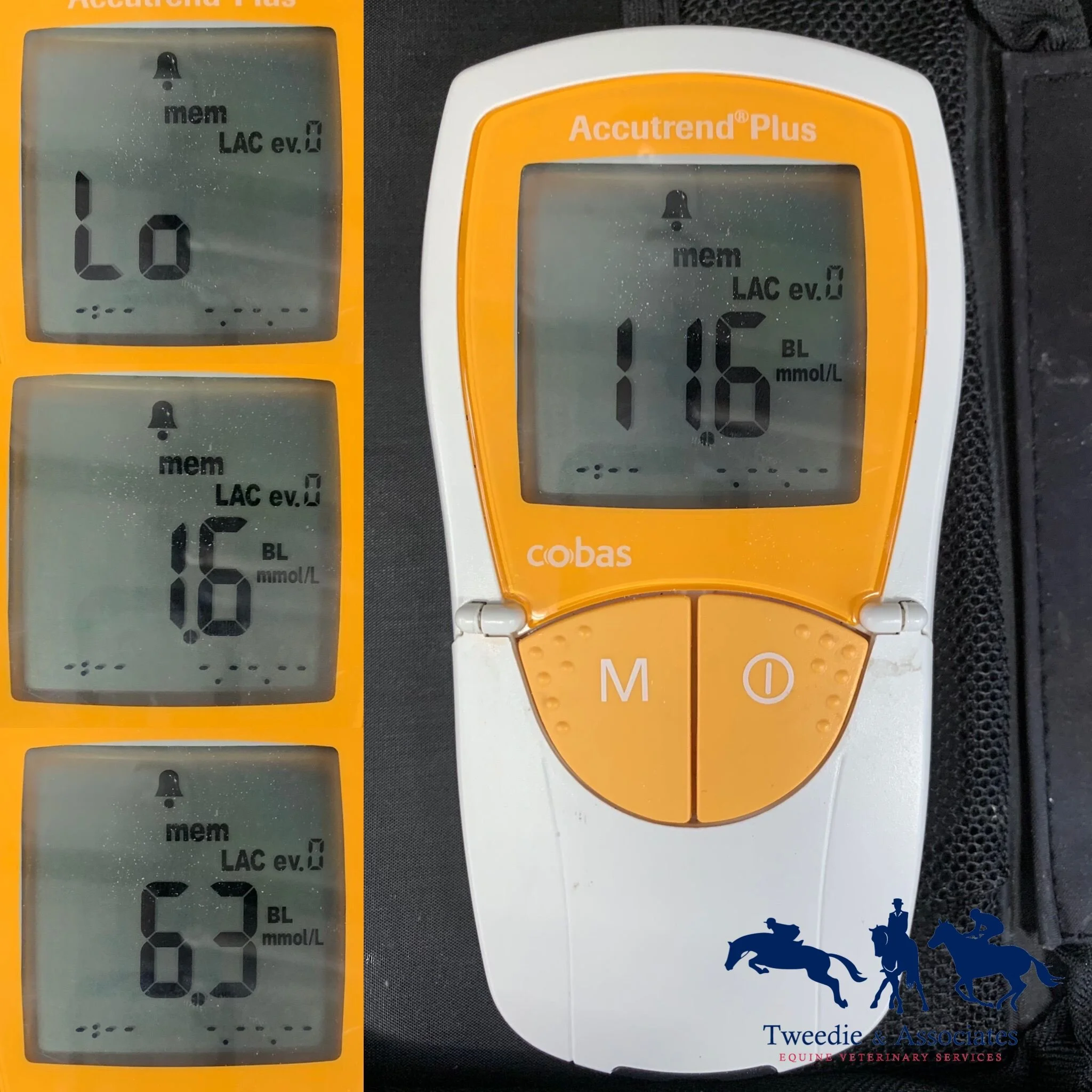Blood Lactate
Blood lactate
Why do we measure blood lactate? 💉🩸 Measuring lactate can be done with a single drop of blood in 60 seconds in the field, and can provide invaluable data in the work up of colic cases. These measurements can help guide prognosis and treatment options dependent on their severity and trends over time.
Normal blood lactate in adult horses is between 0 and 2 mmol/L. In general, mild elevations in lactate (2-4 mmol/L) are often due to dehydration that is the cause or consequences of colic, and may be treatable with fluids via a stomach tube. More marked elevations (4-6mmol/L) indicate a more compromised patient that may require more intensive treatment with intravenous fluids or hospitalisation.
Severe elevations over 7 mmol/L are often found in colic cases that require surgery (such as a twisted/torsed intestine). Elevations over 10 mmol/L are associated with a very low chance of survival even if surgery is possible. Lactate measurements are always used in combination with clinical exam findings to tailor prognosis and treatment options for each individual horse.
Some sample blood lactate readings


